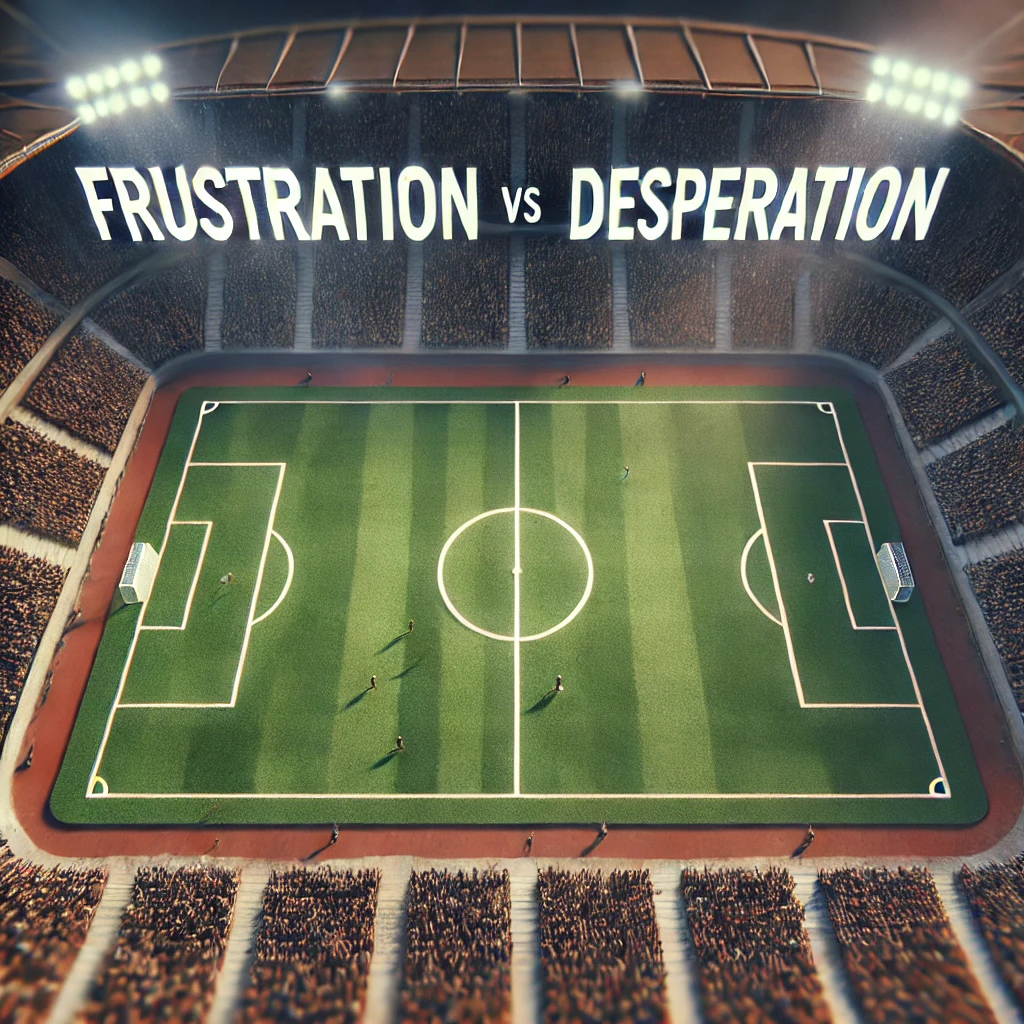The Fine Line Between Frustration and Desperation
16 Jul 2024As an England football fan, I know the feeling all too well. The heartbreak of watching your team come so close, only to fall short at the final hurdle once again. It's now 58 years of hurt.
It's a mixture of emotions – frustration, disappointment, and knowing the team could have done more.
I've experienced a similar feeling in my work as a consultant.

You pour your heart and soul into a project, determined to deliver your best, but sometimes, even when the client is happy, you can't shake the feeling that the outcome is good, but something is missing from making it great.
It's a fine line between frustration and desperation, and it's easy for others to misunderstand which side of that line you're on. Frustration is a natural reaction when you know you have more to give and feel like you haven't quite reached your full potential. Conversely, desperation can be perceived as a sign of weakness, a lack of confidence, or control.
The truth is, frustration is often a sign of passion, of a deep-seated desire to excel. It's the driving force that pushes us to strive for greatness, to constantly seek ways to improve and refine our craft. On the other hand, desperation can be a paralysing emotion, leading to poor decision-making and a loss of focus.
The key is to recognise the difference and channel that frustration productively. Instead of dwelling on the what-ifs and missed opportunities, we need to take a step back, reflect on what we've learned, and use that knowledge to improve.
It's not easy, and it's a battle we all face at one point or another. But the true mark of a champion, whether on the football pitch or in the business world, is the ability to turn that frustration into fuel and use it as a driving force to reach new heights.

Even though we've talked about the golden generation before, this England team can turn frustration into motivation, learn from their failures, and strive for greatness. By the time the World Cup comes along in 2026, the players will have had more success with their clubs, spent more time playing together, and gained more experience knowing what it takes to win trophies and adapt their game.
They are not desperate to win the World Cup; they want to win it, and that desire will fuel what they do next.
Similarly, businesses should recognise the difference between frustration and desperation in their team members. When someone shows frustration, it shows a desire to improve, do their best work, and take ownership and responsibility.
Motivated people consistently deliver more valuable outcomes.
So, the next time you feel frustrated, remember it's a sign of your commitment, passion, and desire to be the best. Embrace it, channel it, and let it drive you forward.